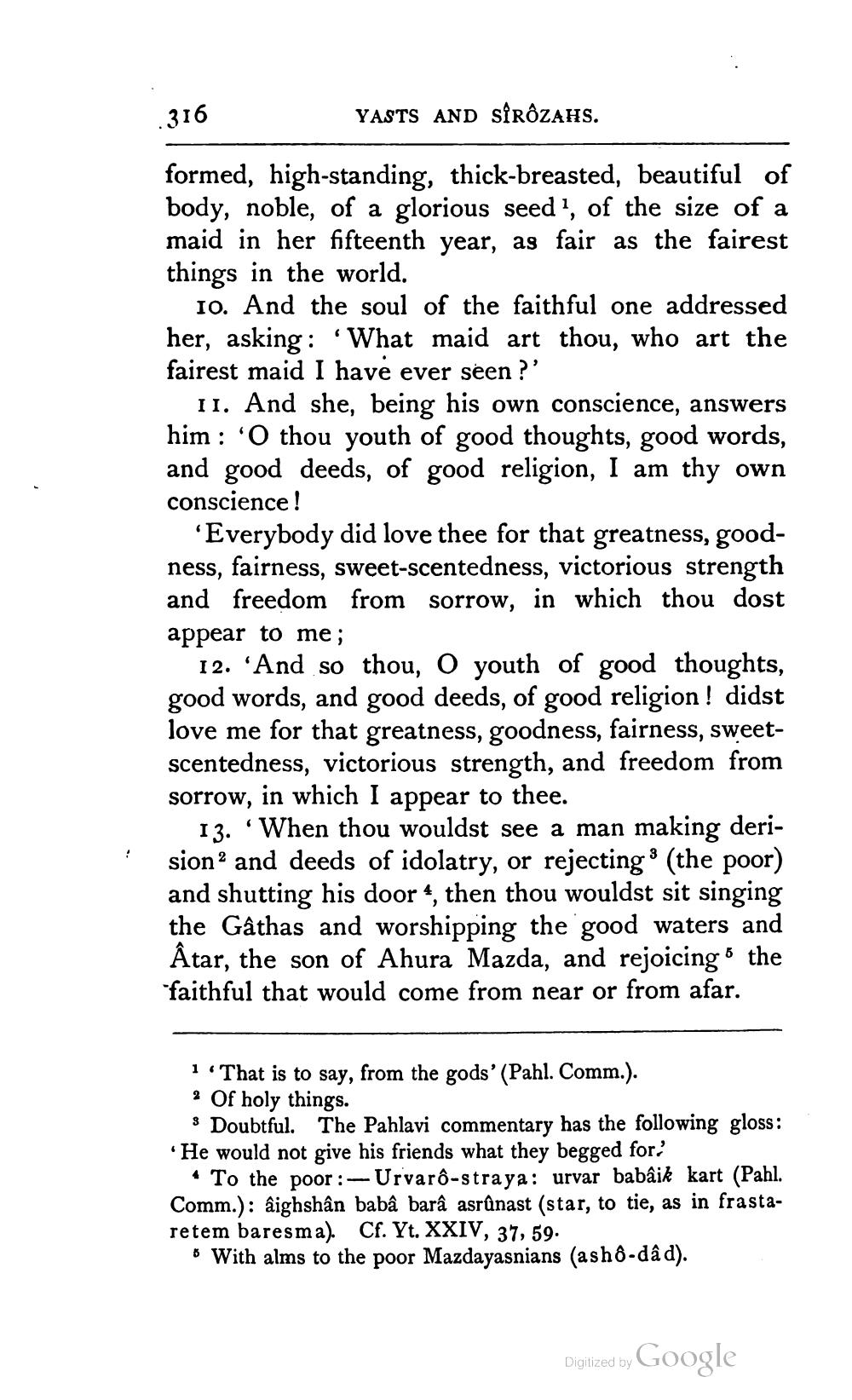________________
.316
YASTS AND SÎRÔZAHS.
formed, high-standing, thick-breasted, beautiful of body, noble, of a glorious seed", of the size of a maid in her fifteenth year, as fair as the fairest things in the world.
10. And the soul of the faithful one addressed her, asking: What maid art thou, who art the fairest maid I have ever seen ?'
11. And she, being his own conscience, answers him : 'O thou youth of good thoughts, good words, and good deeds, of good religion, I am thy own conscience!
'Everybody did love thee for that greatness, goodness, fairness, sweet-scentedness, victorious strength and freedom from sorrow, in which thou dost appear to me;
12. ‘And so thou, O youth of good thoughts, good words, and good deeds, of good religion ! didst love me for that greatness, goodness, fairness, sweetscentedness, victorious strength, and freedom from sorrow, in which I appear to thee.
13. When thou wouldst see a man making derision” and deeds of idolatry, or rejecting' (the poor) and shutting his door 4, then thou wouldst sit singing the Gâthas and worshipping the good waters and Âtar, the son of Ahura Mazda, and rejoicing the faithful that would come from near or from afar.
1 .That is to say, from the gods' (Pahl. Comm.). ? Of holy things. s Doubtful. The Pahlavi commentary has the following gloss: He would not give his friends what they begged for.'
To the poor :- Urvarô-straya: urvar babâik kart (Pahl. Comm.): âighsân babâ barâ asrûnast (star, to tie, as in frastaretem baresma). Cf. Yt. XXIV, 37, 59.
6 With alms to the poor Mazdayasnians (ashô dâd).
Digitized by Google




